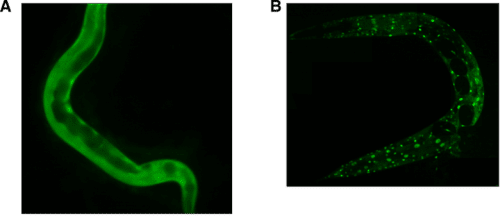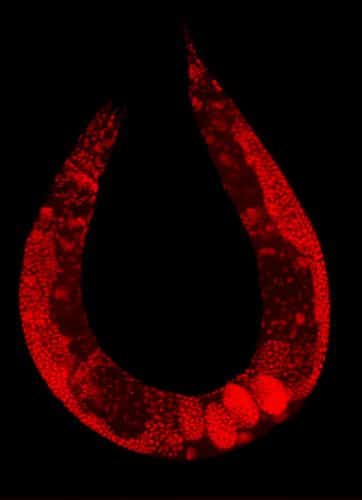Dr. Alon Zeselber and his research colleague Dr. Yifat Eliezer from the Hebrew University, managed to make the worms associate the distress of hunger with a favorite smell, and as a result they stopped loving the smell and associated it with situations of distress. At the same time, the researchers found the nerve cells in which the traumatic memory is stored

People who have experienced a traumatic event and are dealing with post-traumatic stress disorder (PTSD) may develop severe symptoms. They feel, think, and even re-experience what they experienced in the traumatic event. Those feelings of distress from the past can arise in response to all kinds of external stimuli that are linked to the traumatic event, such as sounds, images, or smells. People with such disorders repeatedly feel that they are in danger every time the same memory arises, and will try to protect themselves by various means against a similar traumatic event.
A new study carried out in the Department of Genetics at the Institute of Life Sciences at the Hebrew University, led by researcher Dr. Alon Zasalbar and research associate Dr. Yifat Eliezer, and published in the latest issue of the journal Current Biology, found that worms of the type 'C. elegans' are able to link A smell with a memory of traumatic events. Worms, it turns out, have an associative (contextual) learning ability just like humans do. "We deprived the worms of food for only one day and at the same time we exposed them to a smell that they actually like, and which naturally they immediately gather around. The link between the plight of hunger and the beloved smell meant that the smell was no longer an attractive factor for them. In fact, the worms associated the beloved smell with distress and moved away from it," says Dr. Zaselber.
Later in the study, the researchers examined the ability to predict, and as a result, the ability of the worms to deal with future distress situations. "We wanted to know if the very act of remembering a traumatic situation that occurred in the past allows animals to prepare ahead of time for hardships that are likely to come: first we taught the worms to associate the smell with the distress of hunger, and after we recovered them from hunger, we exposed the worms to the same smell again. To our surprise, and even though the worms were quite full, the smell made the worms understand that apparently times of distress and lack of food were going to return. As a result, they quickly began to activate special genes that helped them survive distress situations that we only activated a few hours later. So the ability to remember gave them the ability to predict and prepare in advance for future situations", says Dr. Zaselber.
It seems that such abilities of learning, memory, and predicting the future developed during evolution out of a survival need: we keep knowledge in the brain, which is based on our life experience, so that in the future we can make informed decisions. However, anxiety disorders, such as PTSD, develop from a particularly acute overreaction to traumatic situations that occurred in the past.

One of the great advantages of using C. elegans worms is the fact that they only have 302 nerve cells. "It was very tempting for us to continue the research and find out where the traumatic memory is stored," adds Dr. Zaselber. "After all, it's rare that we can point to a particular nerve cell and say: 'There, here is the memory!'" Indeed, the researchers discovered the individual cells where the memory is stored. "To prove this, we used advanced genetic engineering tools to activate or deactivate a single nerve cell in an animal. In one of the experiments we used a technology called optogenetics, which makes it possible to activate nerve cells using light, thus replacing the need to use smell to 'raise' the memory. We discovered that it is enough to activate one memory cell to cause the worms to remember the trauma and enter a state of preparation for the impending distress."
Dr. Zeselber's research group is currently investigating the molecular changes that occur within those nerve cells that store the traumatic memory. Cracking these changes will allow in the future to develop therapeutic approaches in an effort to alleviate, and possibly even cure, anxiety disorders, including post-traumatic symptoms that developed in soldiers who participated in difficult and traumatic battles.
